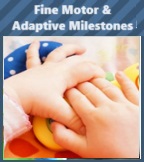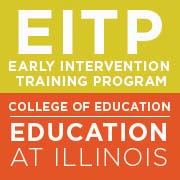Fine Motor & Adaptive Milestones in Early Intervention
Course Outcomes:
Please scroll down for outcomes per discipline and other information, such as Target Audience, Course Content and Level
Course intent: To provide occupational therapists and other disciplines with the clinical background to understand the clinically relevant issues regarding fine motor & adaptive delay so as properly evaluate & implement appropriate therapeutic intervention in the adaptive & fine motor domain, as well as management and prevention of dysfunction in the early intervention setting.
Relevance to occupational: Aforementioned discipline therapists and other early intervention providers treating children between the ages of 0-3 are on the front line of treating children with adaptive and fine motor developmental delay, especially when visiting the home in the early intervention setting.
Outcomes:
Provider will be able to: identify and learn to test for expressed, suppressed, integrated, or preserved primitive reflexes in the child between the ages of 0-3.
Provider will be able to: Identify equilibrium reactions and righting reflexes in the child between the ages of 0-3.
Provider will be able to: Identify specific fine motor milestones for each growth period for the early intervention child.
Provider will be able to: Identify specific adaptive milestones for each growth period for the early intervention child.
Provider will be able to: Identify which primitive reflexes are suppressed, integrated, or preserved in the child with developmental delay, and how these contribute to a cascade of fine motor & adaptive developmental delay
Provider will be able to: Identify occupational therapy outcomes to babies, infants and toddlers with gross motor developmental delay.
Provider will be able to: Utilize the information in this course as a springboard to develop therapeutic management to infants and toddlers with developmental delay in the fine motor & adaptive domain.
AOTA Classification Codes
Domain of Occupational Therapy
Areas of occupation: ADL, Education, work, social participation
Activity Demands: social demands, sequence & timing, required actions & performance skills,
Performance Patterns: Roles
Professional Issues
Legal, Legislative, Regulatory & Reimbursement Issues: federal/ state regulatory statutes
Contemporary Issues & Trends: Ethics, EBP
Target Audience: all audiences, Introductory
Prerequisite: pediatric therapist provider - whether therapist or assistant - with neurological clinical background, or professional-grade graduate of accredited program in occupational or physical therapy.







